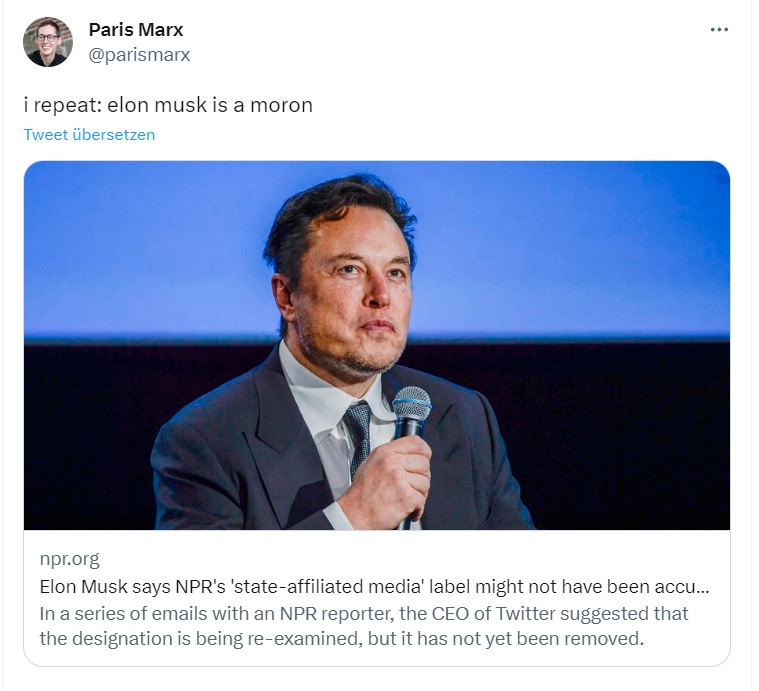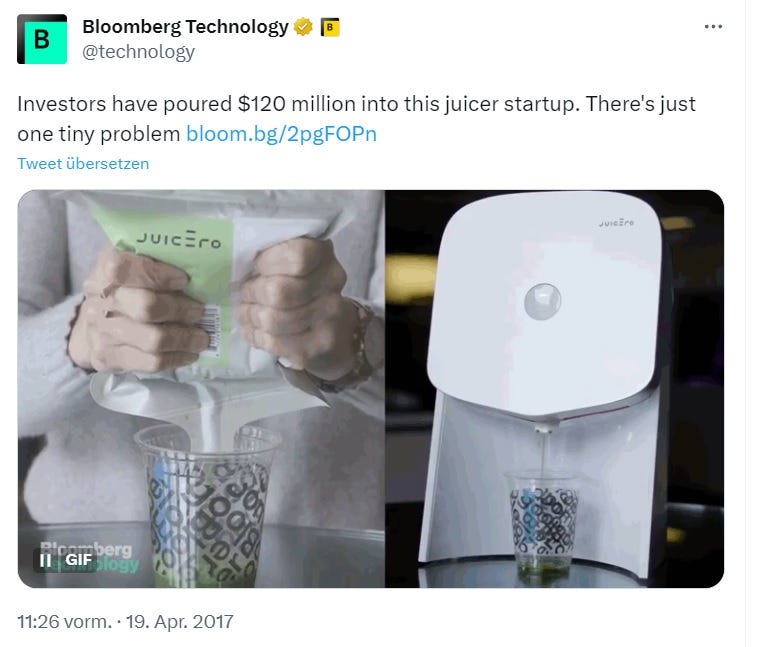Innovation’s Elon Musk Problem
Part I of a series of articles looking at Elon Musk’s biography as a window into technological change and why contemporary innovation so often fails us.
Americans love a good “rags to riches” story. In the late 19th century, Horatio Alger wrote tales of plucky street urchins finding their way to fortune through the combination of hard work and luck. As popular at the time as Steven King’s novels are today, Algers tales were no less farfetched. One told of a boy saving another child from drowning and then being offered a job by the grateful businessman father. Although few people today have read Alger’s stories, they are the archetype for how we talk about innovators–much to the detriment of our thinking about technology.
Nowhere else is this archetype more visible than when people write and talk about Elon Musk. The optimists laud Musk’s work ethic, and his assumed genius. They point to him sleeping on the Tesla factory floor when trying to get the Model 3 production line back on track. The 2021 documentary “Tech Billionaires” lauds Musk: “Our generation has seen incredible advancements in technology. For that, we can thank one of the most successful, influential and notorious entrepreneurs of the 21st century. Elon Musk.”
Critics dismiss Musk’s success as the product of chance. “He really is the living embodiment of the Dunning-Kruger effect,” begins one take on Musk’s purchase of Twitter. In other words, he’s someone whose ignorance leads him to think he’s smart. Economist Robert Reich repeated the disputed claim that Musk’s family owned an emerald mine, attributing Elon’s success to having been born to such privilege. Despite taking Musk “down a peg,” such critics are actually still weaving him into an Alger-esque storyline, albeit one that emphasizes luck rather than hard work.
The problem with both perspectives is not simply that they are one-dimensional and shallow. They are also hype. Cheerleaders and critics alike end up feeding into the “larger than life” story of Elon. He is portrayed as either Iron Man’s Tony Stark incarnate or as the innovation world’s version of Donald Trump.
Lost in these polarized depictions of Musk, and of innovation writ large, is the fact that technology is the product of organizations, of institutions that largely determine what kinds of people rise to the top and the answer to the question “Who gets what investment dollars?” Musk’s successes and failures are as much to do with this environment as with him as a person.
Over the next months, we will dig deeper into both Musk’s biography and the broader social dimensions of innovation, including venture capital. The goal will be to bring Musk back down to Earth, humanizing him without falling prey to the hype that infects positive and negative depictions alike. Having done so we can see him as a symptom, not a cause, of broader pathologies within America’s system of innovation. Along the way, we will also learn how we might make better use of people like Elon Musk. How would a more intelligent innovation environment amplify the good qualities of tech innovators while providing a check on their excesses?
Entrepreneurs are no doubt necessary to a thriving economy. The Elon Musks of the world take risks that most of us would never willingly bear. By plunging into the uncertain, innovators help us learn about and (hopefully) better manage the complexity inherent to technological change.
But there are signs that innovation isn’t working as well as it should, at least not well enough for a good portion of humanity. There are cases of outright fraud like Theranos, whose former CEO Elizabeth Holmes was just sentenced to 11 years in prison after raising billions for a revolutionary blood testing technology that didn’t actually work. A more mundane example is that of Juicero, a late 2010s firm that made a several hundred dollar juicer, albeit one that squeezed packages of fruit and vegetable pulp more slowly than human hands could. These cases illustrate the all-too-frequent wastefulness of venture capitalists' infatuation with self-styled innovators promising technological revolutions.
Worst of all, most of humanity’s chronic problems go unaddressed. As Elizabeth McBride asked in the MIT Technology Review, where are the start-ups helping to prevent or weather the next pandemic, better provide medicine to those suffering from drug addiction, or help low-income schools find better substitute teachers? People deserve nothing less than a system of innovation that explicitly remedies their complaints and makes their lives better. But getting to such a system will mean radically rethinking how we support technological innovation.








